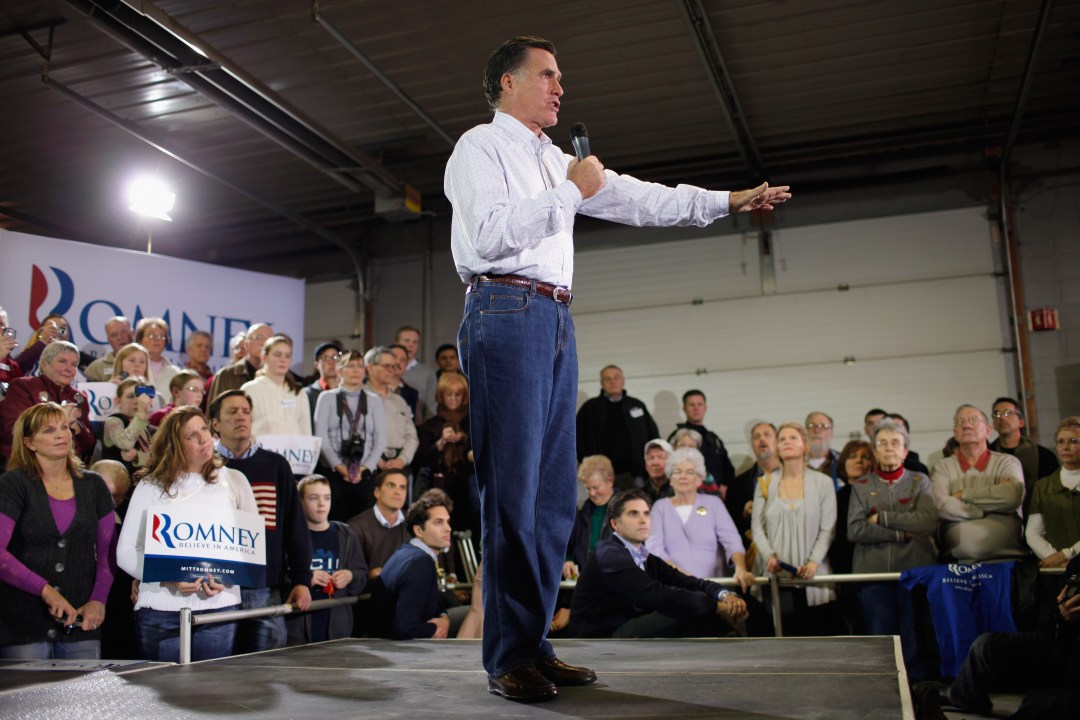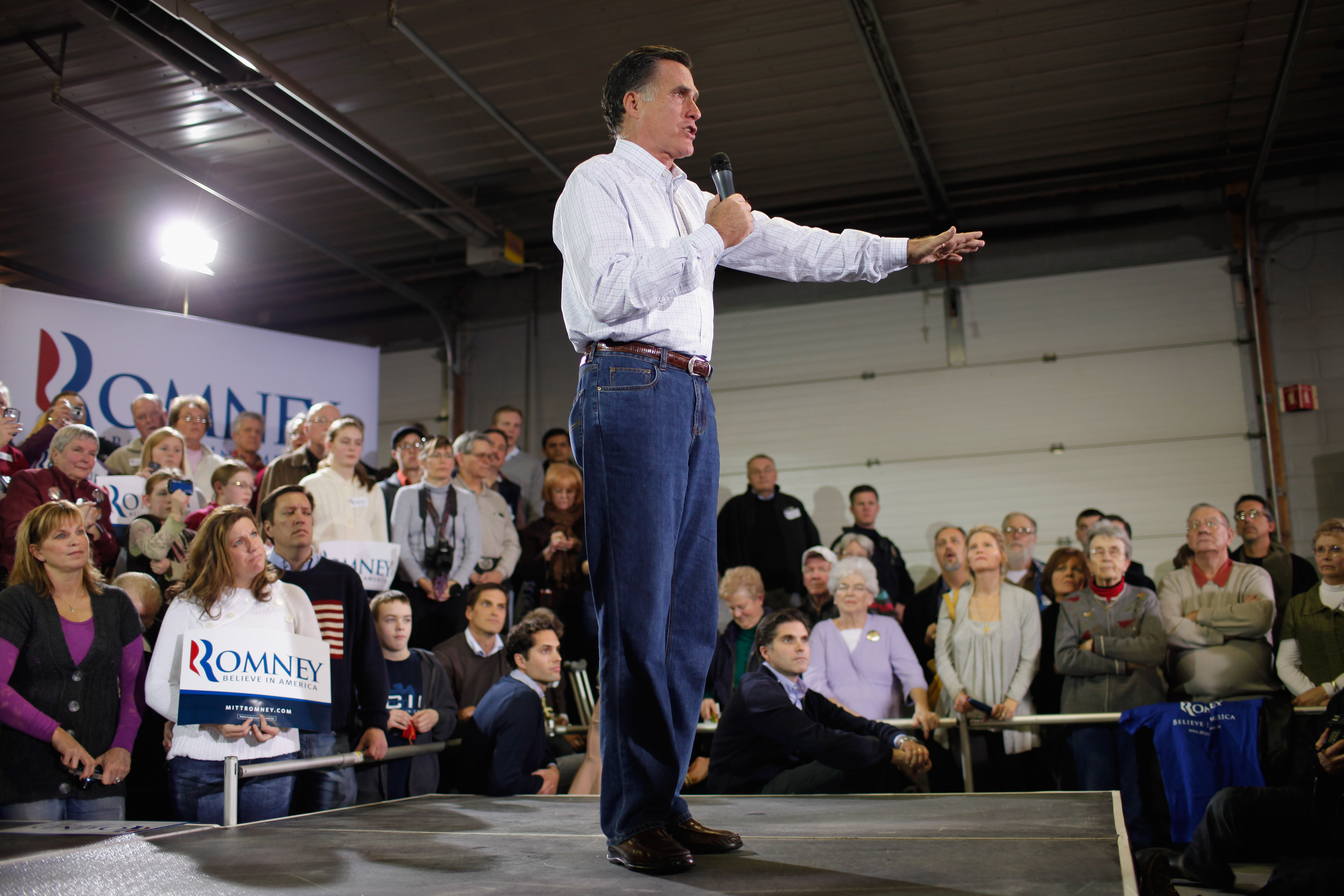One of the things that makes the Iowa caucuses so different from most elections is that it is almost the opposite of a secret ballot. Four years ago I went to report on a caucus in suburban Des Moines. As soon as voters entered the school sports hall in which it was taking place, they had to go and stand in the corner of their candidate.
There then followed a quite remarkable period where people tried to get their friends and neighbours to come over to their corner. Everyone was clocking who everyone else was voting for.
This gives the caucuses a very different dynamic than other elections. Tonight in Iowa, it won’t be possible to be, for instance, a shy Rick Perry supporter.
One consequence of this is that it creates a bandwagon effect. At the caucus I was at four years ago, I watched one previously undecided voter, who had told me outside she would go for either Hillary Clinton or Barack Obama, walk in, see that the gaggle of Obama supporters was by far the largest in the room and join them. You also saw people moving to be with their friends, or others whose judgement they trusted.
Another thing that the caucus rewards is organisation. I was struck by just how many young couples were supporting Obama compared to Clinton. When I asked a few of them why they were voting Obama, they said that the Obama campaign had made it very easy for them to get away and caucus, something that takes about an hour and a half, by laying on volunteers to babysit their children.
Update: As Trevor points out, this post is describing a Democratic caucus in Iowa in 2008. The Republican procedure is different, but not that different. Lots of Republican precincts vote by a show of hands and even those that use ballots tend not to have voting booths or anything like that.








Comments